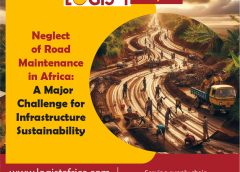By Carlos Kpodiefin
In many African countries, enormous sums are invested annually in road construction to stimulate economic development, improve regional connectivity, and facilitate trade. However, despite these initial efforts, inadequate road maintenance has emerged as a major challenge, threatening the long-term sustainability of these crucial infrastructures essential to the continent’s emergence.
The significant financial resources poured into road construction are often celebrated as major advancements, enabling the connection of remote regions, improving market access, and encouraging economic development. Nonetheless, these investments are frequently overshadowed by a lack of long-term planning regarding road maintenance.
One of the main problems encountered is the failure to allocate adequate resources for the regular maintenance of existing roads. Governments, after mobilizing substantial funds for construction, often face budgetary challenges when it comes to maintaining these infrastructures in good condition. This neglect has devastating repercussions on the durability of the roads, leading to premature deterioration, frequent accidents, and decreased efficiency of the road network.
The effects of this neglect are particularly felt in rural areas, where access to basic services often depends on the quality of road infrastructure. Farmers, for instance, face increased difficulties in transporting their products to markets, thereby hindering the economic development of agricultural regions. Additionally, quickly accessing healthcare services during medical emergencies is often an impossible mission, endangering the lives of vulnerable groups such as pregnant women and children. The economic consequences of road degradation are also significant. The costs associated with emergency repairs and delays caused by poor road conditions represent a considerable financial burden for governments, businesses, and citizens. Moreover, this has a negative impact on attracting foreign investments, as the quality of transport infrastructure is a key factor in site selection for international companies.
To address this situation, it is imperative that African governments adopt more holistic approaches to infrastructure planning. This includes not only the initial construction but also long-term planning for regular road maintenance. Sustainable financing mechanisms, such as public-private partnerships and road maintenance funds, should be considered to ensure effective resource management throughout the lifecycle of roads.
In summary, inadequate road maintenance in Africa poses a serious threat to infrastructure sustainability. It is imperative that governments give equal attention to initial construction and continuous maintenance of roads to ensure that current investments translate into lasting benefits for economic development and regional connectivity.






